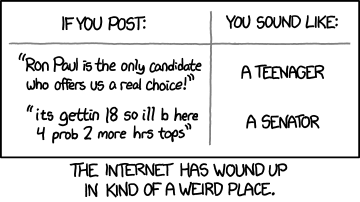The research or report produced by an engineer is extremely important in getting himself established in his field. The hard work he put into his research could not be well presented if not well written. However, novice technical writers face numerous obstacles that prevent them from presenting their information clearly thus create wide readership.
This article shares some tips to engineers who are non-native speakers of English who would like to become successful technical writers in that language. It highlights some strategies to be adopted during writing. Further, the article outlines how various aspects like word choice, paragraph building, tone and grammar of a text could affect the way readers comprehend the text. It also shares some do’s and don’ts to become a good technical writer.
Introduction
Engineers investigate and try to answer questions on the working of things. While writing research reports, not only a sound knowledge of the subject is a pre-requisite but effective communication through correct language use is also important. Technical writers need to adopt a clear and effective way of expression in order to be well-understood by the readers.
This article outlines a few aspects that need attention when writing research reports in English in order to be well accepted by readers and field experts. Particular attention is given to word choice, sentence and paragraph structure, tone and grammar.
Word choice
Choices made at the lexical level make huge difference in how texts are received by the readers. While this is equally true for both verbal and written communication, verbal message especially face-to-face can be accompanied by acts such as gestures, eye contact and body language. This facilitates overall comprehension.
Unfortunately, this facility is not available in written communication. The only way left to convince the reader is through the correct word choice.
There are many factors which are decisive in determining the choices at the lexical level. To begin with, a technical writer needs to have information on the prospective readers of the text. A text written without an imagined reader is like music without soul. They need to identify who is going to read the text – whether they are students with limited knowledge or field experts with vast level of knowledge and experience. The language should have appeal to both sectors and should possess technical depth to satisfy the experts while simple enough to gain attention of novice learners of the field.
There is a possibility that as researchers, engineers writing a report might possess greater domain knowledge than their readers. This situation often results in failing to provide a proper background to their study as they tend to fall prey to the assumption that since they are aware of it, the readers ought to know it as well.
Contrary to their assumption, writing involves putting the reader in the situation. The text should be written by identifying exactly what the reader wants to know and orienting the text to arouse his interest.

Technical jargon
A technical write up usually contains a lot of technical vocabulary which do not pose a problem to field experts. However, a list of acronyms should be provided for students or newcomers in the field as they might eventually be reading the report after it has been accepted by the field experts.
Sentences
Long, complex sentences do not indicate the expertise of a technical writer. These sentences act as a hindrance in readers’ comprehension of a composition. While conveying highly technical information, small connected sentences should be preferred over very long and run-on sentences.
Paragraph building
The essential component of a written piece is the way paragraphs are built. The writers often cram information in a paragraph without any thought on organization. This leads to information dumping rather than information building.
The paragraphs should follow a structure. Each paragraph must revolve around a single idea. The first sentence of a paragraph should be the topic sentence and the rest of the sentences should be written to support that main idea presented in the first sentence (see the TSPU writing technique). The last sentence could either refer back to the first sentence or lead to the idea in the following paragraph.
(Next page please)
